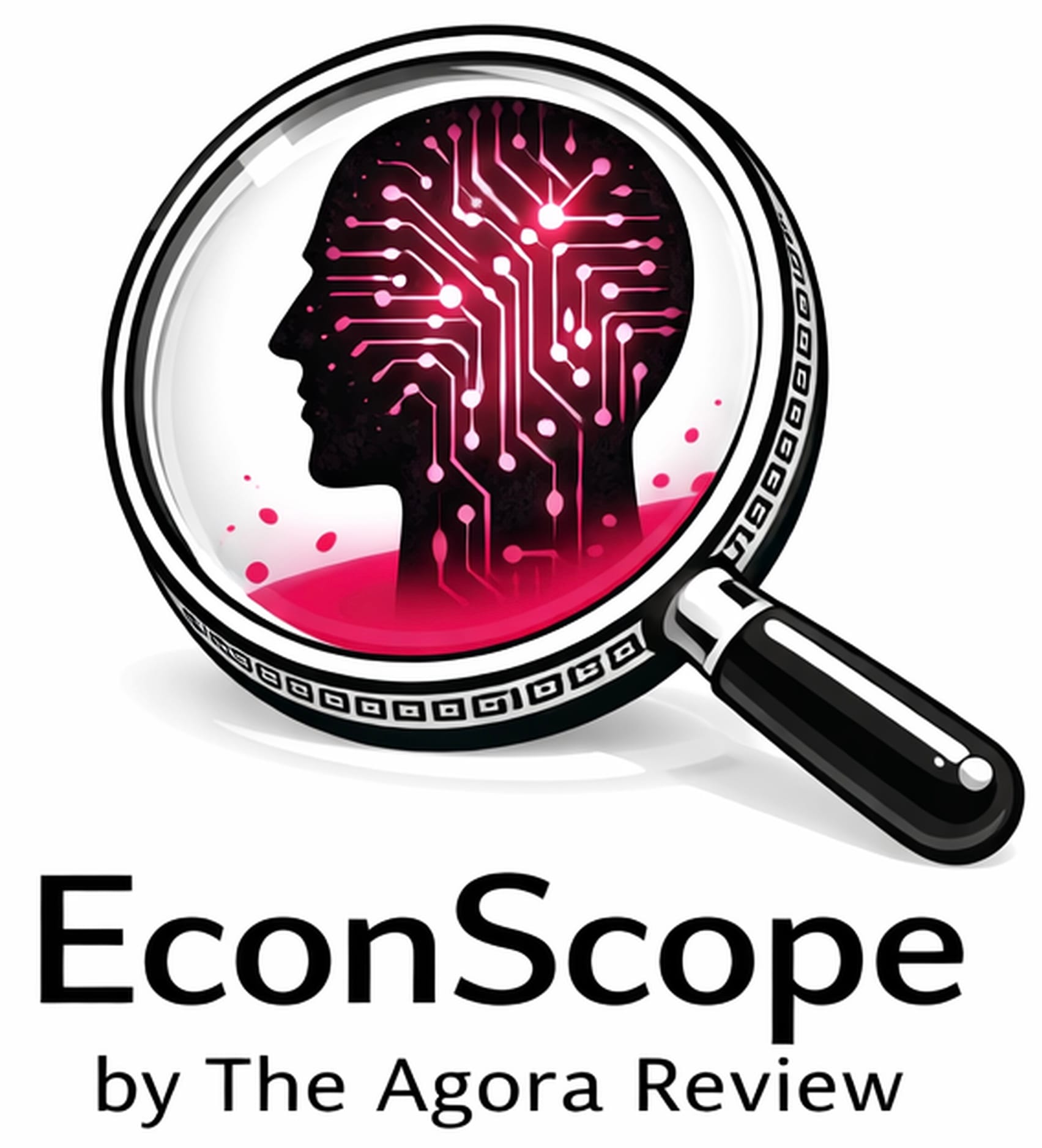The Political GPS: Mapping the World’s Leaders in Values and Global Cooperation

Discover the 2025 Political GPS Report: Ranking countries by governance values & global cooperation. Exclusive insights, data-driven rankings & trends!
Disclaimer: This analysis was inspired by a recent article from the Financial Times exploring global political alignments. Intrigued by their approach, we set out to independently test a similar methodology using our own dataset and scoring system. Our findings closely align with their conclusions, reinforcing key global trends in governance and international cooperation.
While this study draws inspiration from the FT article, all research, scoring, and visualizations presented here are independently conducted using publicly available data sources (Freedom House, V-Dem, IMF, WTO, SIPRI, and others). Any similarities in conclusions reflect parallel analytical reasoning rather than direct replication.
Where Do Countries Stand in 2025?
In an increasingly divided world, where do nations stand on political values and global engagement? Are they open and cooperative, forging alliances and upholding freedoms? Or do they lean authoritarian and isolationist, shutting out dissent and international ties?
To answer this, we built a Global Political Alignment Matrix—a 2x2 map ranking countries (including Brazil, Russia, India, China, USA and EU member states) based on:
- How liberal or authoritarian their governance is (Liberal vs. Conservative Values).
- How much they engage with the world or turn inward (International Cooperation vs. Isolation).
The Global Political Alignment Matrix
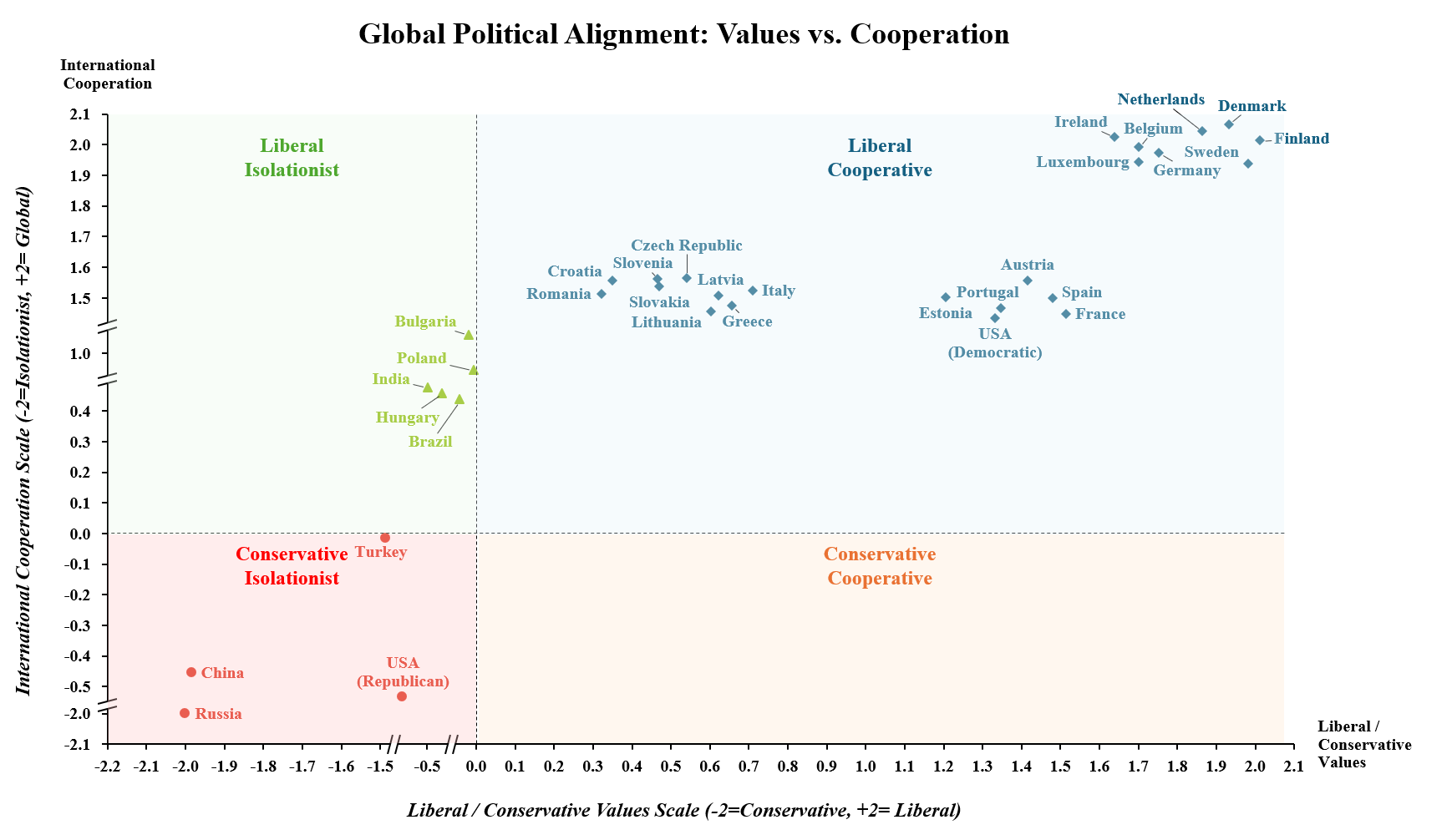
- Top-Right (Liberal & Cooperative) → Countries with strong democratic institutions, civil liberties, and global leadership (e.g., Sweden, Germany, USA (Democratic leadership), France).
- Top-Left (Liberal & Isolationist) → Countries that uphold democracy but prefer staying out of global affairs (e.g., Brazil, India).
- Bottom-Right (Conservative & Cooperative) → Countries that restrict freedoms at home but engage in diplomacy and trade (non in our sample).
- Bottom-Left (Conservative & Isolationist) → Nations that suppress liberties and avoid global cooperation (i.e., China, Turkey, Russia, USA (Republican Leadership)).
How We Scored the World’s Nations
We ranked each country based on two core dimensions:
1️⃣ Liberal vs. Conservative Values (X-Axis)
How free is the press? Can opposition parties function? Are civil liberties protected?
- +2 (Highly Liberal): Free press, independent courts, minority rights protected (e.g., Denmark, Sweden).
- 0 (Mixed): Democratic backsliding or hybrid systems (e.g., India, Brazil).
- -2 (Highly Conservative): One-party rule, controlled press, restricted freedoms (e.g., Russia, China).
2️⃣ International Cooperation vs. Isolation (Y-Axis)
Do they engage in diplomacy, trade, and global governance—or go it alone?
- +2 (Highly Cooperative): Active in UN, NATO, free trade, foreign aid (e.g., Denmark, Sweden).
- 0 (Neutral/Transactional): Participates selectively in global affairs (e.g., Turkey, India).
- -2 (Highly Isolationist): Rejects global norms, minimal engagement (e.g., Russia, China).
Our rankings combine hard data (Freedom House, V-Dem, UN, WTO, SIPRI, IMF) with qualitative analysis of political trends.
7 Key Insights from the Political GPS
Liberal democracies like Finland, Sweden, Netherlands and Denmark, rank close to +2 in both values and global cooperation. They lead in human rights, alliances, and foreign aid, reinforcing the link between domestic freedoms and international engagement.
🇺🇸 2. The U.S. Position Changes Depending on Leadership
- Under Democratic administrations, the U.S. leans liberal and cooperative, prioritizing alliances, diplomacy, and climate action (~+1.5 cooperation).
- Under Republican leadership, the U.S. shifts toward economic nationalism and unilateralism, moving closer to Turkey or India.
🇨🇳 3. China Is Globally Connected—But Not Democratic
Despite being highly authoritarian (~-2 in values), China remains partially cooperative (~-0.5 in global engagement) due to its reliance on global trade and diplomacy. But it defies Western-led institutions, limiting its cooperation score.
🇷🇺 4. Russia: The Ultimate Outcast
Russia (-2, -2) sits at the absolute bottom of the matrix, reflecting its domestic repression and extreme geopolitical isolation. The Ukraine invasion and global sanctions severed its multilateral ties, leaving it reliant on a small circle of authoritarian allies.
🇭🇺 🇵🇱 5. Hungary & Poland: The EU’s Problem Children
Most EU countries cluster in the liberal-cooperative quadrant, but Hungary and Poland are outliers.
- Hungary has authoritarian leanings but stays in the EU for economic perks.
- Poland is conservative but remains highly engaged in NATO/EU, especially in response to Russia’s invasion of Ukraine.
🇮🇳 🇧🇷 6. India & Brazil: Democratic but Selective Partners
Both India and Brazil score near (0, +0.5), reflecting their democratic but nationalist domestic policies and selective global engagement.
- India pursues "strategic autonomy"—it engages in trade but avoids military alliances.
- Brazil fluctuates depending on leadership, swinging between pro-Western multilateralism (under Lula) and nationalist isolation (under Bolsonaro).
🇹🇷 🇨🇳 7. Turkey & China: Engaged, but Only When It Suits Them
Both Turkey ~(-1.5, 0.0) and China ~(-2.0, -0.5) participate in global trade and diplomacy, but only on their own terms.
- Turkey remains in NATO but often defies allies, favoring unilateral military actions (e.g., Syria, Libya).
- China leverages trade but obstructs Western-led rules, balancing economic cooperation with political defiance.
🔒 Want the Full Report?
This Executive Summary gives you the big picture, but our members-only 95-pages report includes:
✔ Expanded Methodology – How we weighted civil liberties, democracy scores, trade openness, and diplomacy.
✔ Country Profiles – In-depth justifications for every nation’s score, including political trends and policy shifts.
✔ Regional Deep-Dives – Analysis of EU divisions, BRICS alignment, and shifting alliances in 2025.
✔ Raw Data Access – Full dataset of country rankings, source references (UN, IMF, SIPRI, V-Dem, etc.), and methodology details.
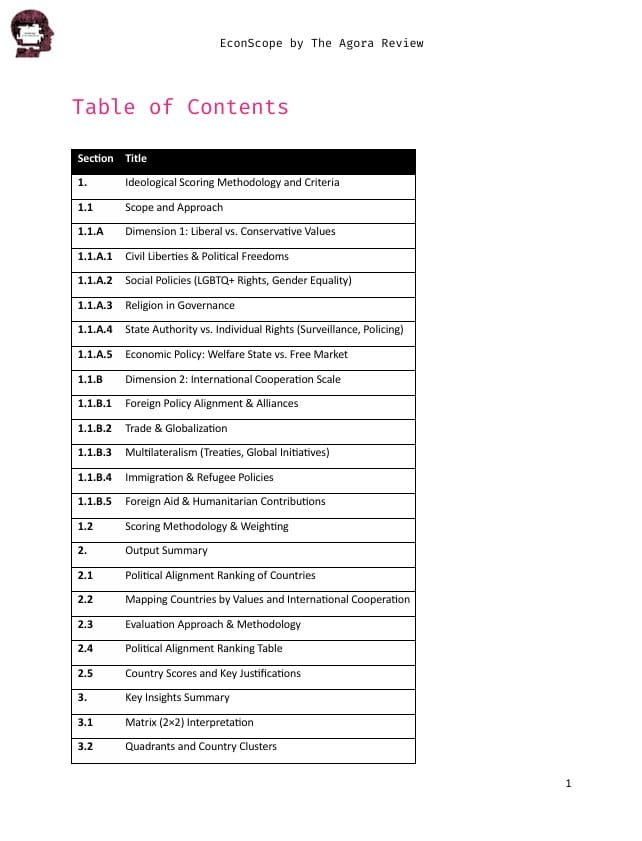
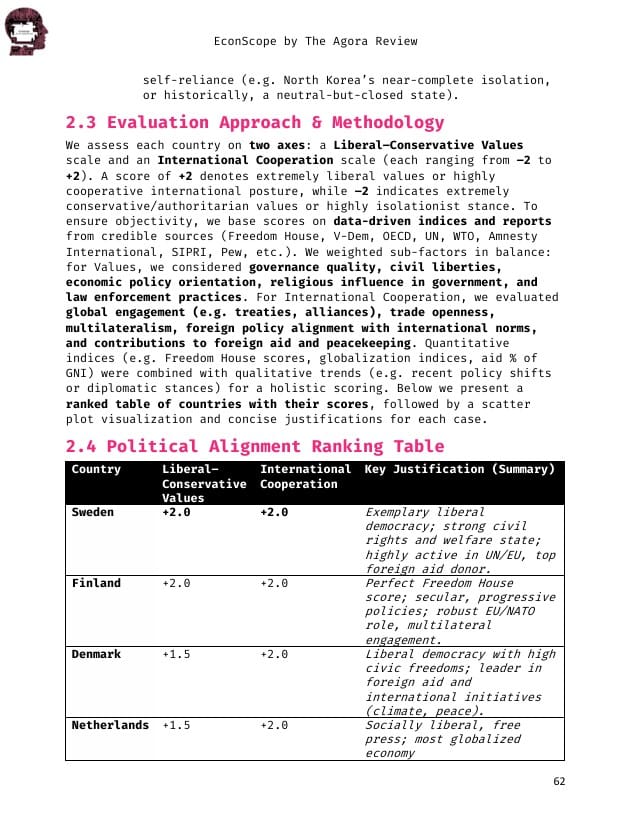
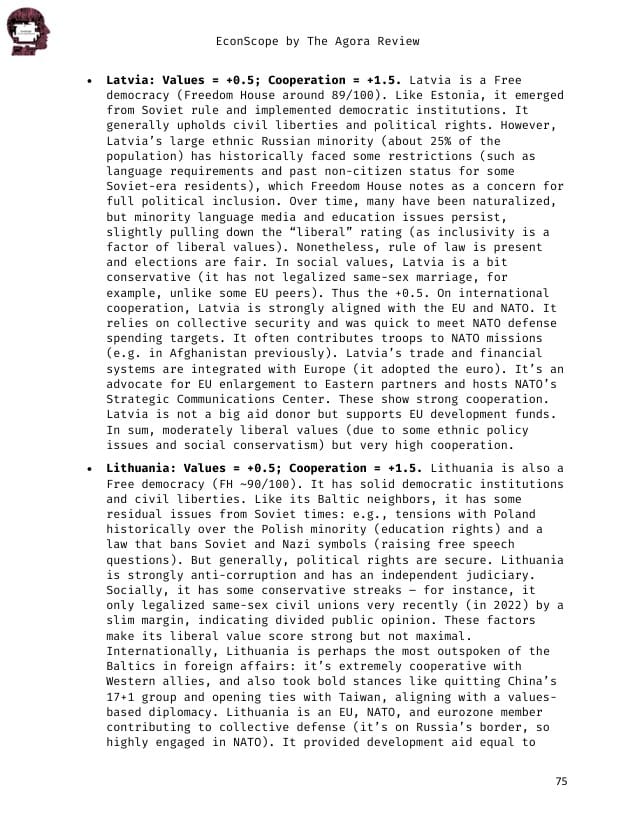
Explore the full Political GPS Report. See the complete Table of Contents and unlock exclusive global political insights, country rankings, governance trends, and international cooperation insights.
💡 Get exclusive access to detailed country rankings and insights.
👉 Subscribe Now for the Full Report
